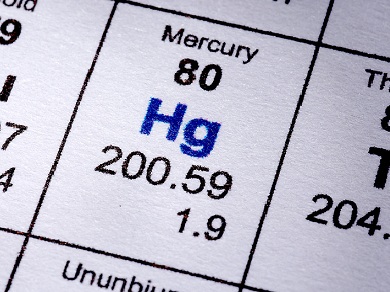Microbes in aquatic environments make methylmercury, a toxic form of mercury that accumulates in fish. Other types of bacteria can transform methylmercury to less toxic forms. The mechanisms of these transformations have rarely been studied in anoxic environments and are poorly understood.
Baohua Gu, Oak Ridge National Laboratory, USA, and colleagues report that compounds from the decay of organic matter affect mercury cycling in dark anoxic environments. They found that low concentrations of compounds such as humic acid can chemically reduce mercury, but as those concentrations increase, that reaction is greatly inhibited.
This demonstrates that in anoxic sediments and water, organic matter is not only capable of reducing mercury, but also binding to mercury, which could change the way in which mercury-impacted sites are treated.
- Mercury reduction and complexation by natural organic matter in anoxic environments
B. Gu, Y. Bian, C. L. Miller, W. Dong, X. Jiang, L. Liang,
Proc. Nat. Acad. Sci. 2011.
DOI: 10.1073/pnas.1008747108




